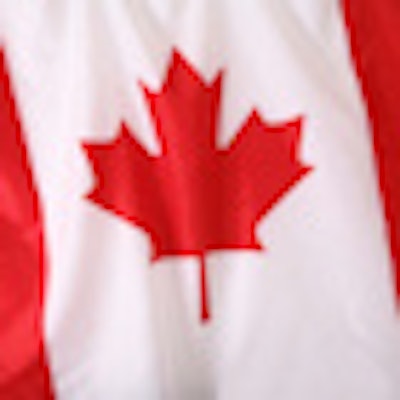
The oral health of Canadians is, on the whole, much better than it was in the 1970s, according to the oral health component of the 2007-2009 Canada Health Measures Survey (CHMS) released May 10.
The survey was conducted by Statistics Canada, Health Canada, and the Public Health Agency of Canada. The oral health component was carried out by the Office of the Chief Dental Officer with the help of the Department of National Defense.
It was the first survey of the country's oral health to be conducted in nearly 40 years. The Nutrition Canada National Survey, conducted in 1972, found that 74% of people ages 6 to 11 had at least one cavity. But the new CHMS data show that number has fallen to less than 25%.
In addition, while the proportion of adults who have had at least one cavity has remained stable at 96%, the average number of decayed, missing, or filled teeth in adults who still have their teeth has fallen from 17.5 to 10.7. And the percentage of adults who have lost their teeth has plummeted from 24% to 6%.
The picture is not completely positive, however. Twenty-four percent of Canadian children ages 6 to 11 have at least one decayed, missing, or filled tooth. Comparatively, the proportion is 21% among U.S. children, according to the latest National Health and Nutrition Examination Survey (NHANES).
|
Among the survey's other key findings:
- 84% of Canadians reported that they have good or excellent oral health.
- 74% had seen a dental professional in the previous year.
- Two out of every three Canadians with natural teeth do not need dental treatment.
- 12% avoid certain foods because of problems with their teeth or mouth.
- 12% have ongoing pain in their mouth.
- 17% did not make an appointment to see a dental professional in the previous 12 months because of the cost.
- 16% avoided getting all their recommended treatment done in the previous year because of cost.
"The survey data also tell us -- and we've known this for a long time -- that there are significant inequalities with regard to access to dental care," said Carlos Quiñonez, D.M.D., M.Sc., Ph.D., an assistant professor at the University of Toronto and director of the dental school's public health program. "The lower your income, or if you don't have insurance -- essentially, the more marginalized you are in our society -- the worse it's going to be for you."
Canadian data should be collected much more frequently than every 40 years to provide an accurate representation of how Canadians' oral health is changing, he added.
Copyright © 2010 DrBicuspid.com



















